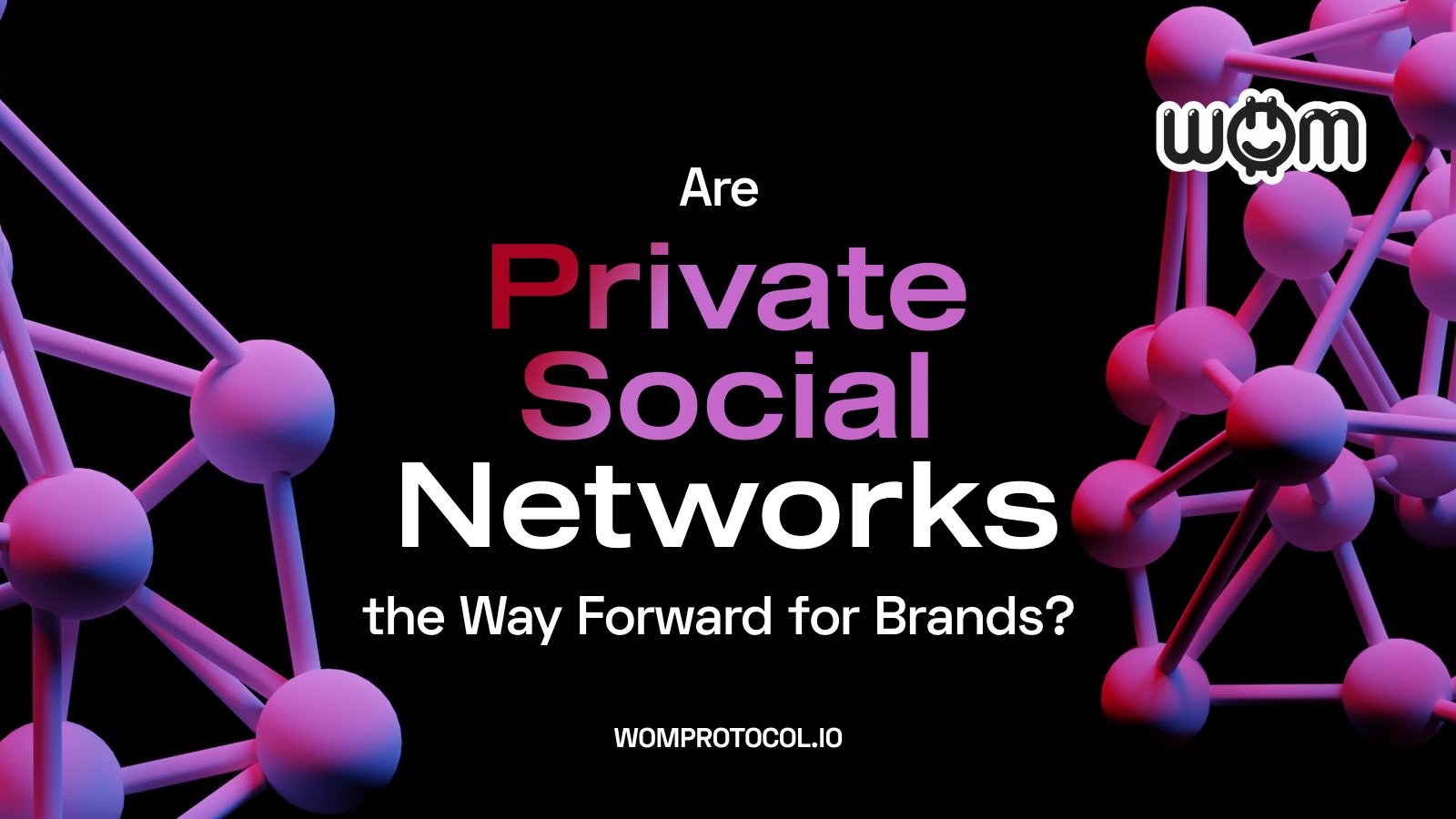Are Private Social Networks the Way Forward for Brands?
Our relationship with social media started out with so much optimism. Here was everyone’s chance to pick up the mic, connect over quirks and passions, and access experts on absolutely any topic. From the brand perspective here was the promise of broadcast reach independent of traditional media, and a chance to show a more human side through two-way conversations with customers.
Alas, as the years went by our relationship with social media took a rather more dysfunctional turn as the very things we loved about Big Tech turned into its ugliest problems. People who had once openly shared their personal lives in abundance began questioning the ethics and vulnerabilities of platforms with unfettered access to their personal data. Notorious social media trust breaches, such as 2014’s Cambridge Analytica scandal, opened our eyes to the dangers of how that data could be manipulated to spread disinformation and influence election results (The New York Times). Then there was the nasty realization that handing everyone the mic and enabling the unprecedented ability to communicate on platforms with immunity could stir up hate speech and harassment.
These negative associations are hardly good news for brands looking to build trustworthy relationships with consumers, but a complete digital disconnect is a surefire way to relinquish a share of voice to thirsty competitors. So could private social networks be the better brand alternative?
In this post, we will explore the rise of private social networks, their relevancy for brands, and useful stats and steps for building a private network brand presence.
Private Social Networks: The Rise of the Anti-Facebook
“Larger platforms have added ways for people to silo their activities and restrict their visibility.”
Private social networks are niche social media platforms that are designed for specific communities or groups of people. They offer a range of benefits over mainstream social media platforms, including greater privacy, more focused and meaningful interactions, and fewer issues with misinformation and harassment.
In 2022 81% of Americans felt more concerned about sharing personal data on social networks than they did the previous year (Go.Verizon Social Privacy Survey Report 2022). This has led to a growing interest in private social networks, with some of them seeing rapid growth in recent years.
Mighty Networks, a private social network platform that allows users to create their own custom social networks, has seen a 70% increase in its user base over the past year. Upstream, a private social network platform designed for creators and entrepreneurs has seen a 200% increase in its user base over the same period.
What Does This Mean for Brands?
Private social networks offer brands an opportunity to connect with their audience in a more meaningful and authentic way. By targeting specific communities or groups of people, brands can build deeper relationships with their customers, foster a sense of belonging, and gain valuable insights into their preferences and behaviors.
However, it's important for brands to approach private social networks with a clear strategy and a deep understanding of the platform and its users. Here are some steps that brands can take to prepare for targeting their audience on those platforms:
Research the platform:
Before joining a private social network, brands should research the platform and its user base to understand its culture, values, and the type of content that performs well.
Create engaging content:
To succeed on private social networks, brands need to create content that is engaging, relevant, and valuable to the platform's users. This can include creating custom content for specific communities or groups of people, as well as leveraging user-generated content to build trust and authenticity.
Build relationships with influencers:
Private social networks are often driven by influencers and micro-influencers who have a strong following within their communities. Brands can build relationships with these influencers and leverage their influence to reach a wider audience.
Focus on community building:
Private social networks are all about building communities and fostering a sense of belonging. Brands should focus on building a community around their brand, creating a sense of exclusivity, and offering special perks and incentives to their followers.
The Bottom Line
Private social networks offer a promising alternative to mainstream social media platforms, and they are changing the way we think about social media. By targeting specific communities or groups of people, brands can build deeper relationships with their customers and gain valuable insights into their preferences and behaviors.
However, success on private social networks requires a clear strategy, a deep understanding of the platform and its users, and a focus on building meaningful relationships with the platform's influencers and followers. Brands that can master these skills will be well-positioned to succeed in the new era of social media.
As the trend towards private social networks continues to grow, brands need to adjust their content strategy on mainstream social media platforms as well. Here are a few tips on how brands can do this:
Focus on authentic, relevant content:
Private social networks are all about meaningful, authentic interactions. Brands should aim to create content that is relevant to their audience and adds value to their lives. This will help to build trust and foster a sense of community around the brand.
Prioritize engagement over reach:
Private social networks are often smaller than mainstream social media platforms, but they are more focused on building connections and relationships. Brands should prioritize engagement over reach and aim to build meaningful connections with their audience.
Utilize user-generated content:
Private social networks are often driven by user-generated content, and this can be a powerful tool for building trust and authenticity. Brands should encourage their followers to create and share content related to the brand, and highlight this content on their social media profiles. The WOM Protocol (womprotocol.io) is a blockchain-based platform that incentivizes user-generated content (UGC) through its WOM Token. This protocol can be integrated in any website, app or platform and enables creators to earn for their recommendations about brands. In turn, brands can engage audiences by replacing traditional ads with UGC, content that is more authentic and likelier to convert.
Create exclusive content:
Private social networks offer a sense of exclusivity and community that is hard to replicate on mainstream social media platforms. Brands can create exclusive content for their social media followers, such as behind-the-scenes footage or sneak peeks of new products or services.
Leverage influencers and micro-influencers:
Private social networks are often driven by influencers and micro-influencers who have a strong following within their communities. Brands can work with these influencers to reach a wider audience and build relationships with their followers.
Invest in social media advertising:
As the competition for attention on social media continues to increase, brands may need to invest in social media advertising to reach their target audience. By utilizing targeted ads on mainstream social media platforms, brands can reach the right people with the right message.
In conclusion, brands need to adapt their content strategy to the changing social media landscape, and that means embracing the trend towards private social networks. By focusing on authentic, relevant content, prioritizing engagement over reach, utilizing user-generated content, creating exclusive content, leveraging influencers and micro-influencers, and investing in social media advertising, brands can build meaningful connections with their audience and stay ahead of the curve.

